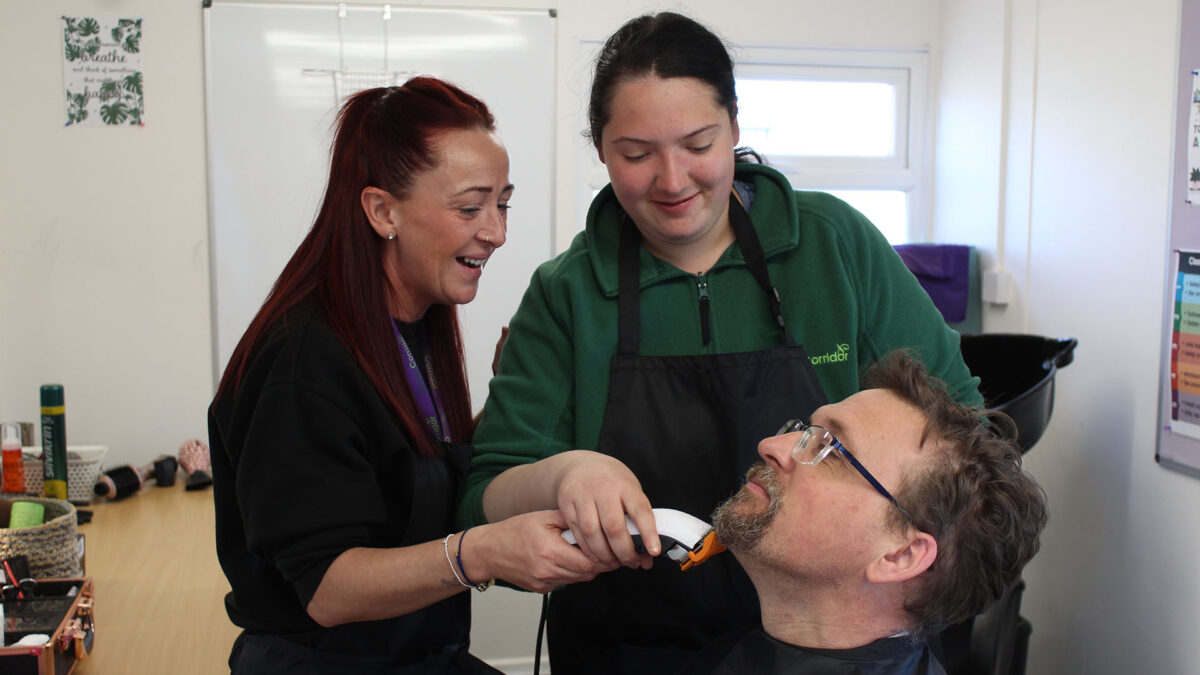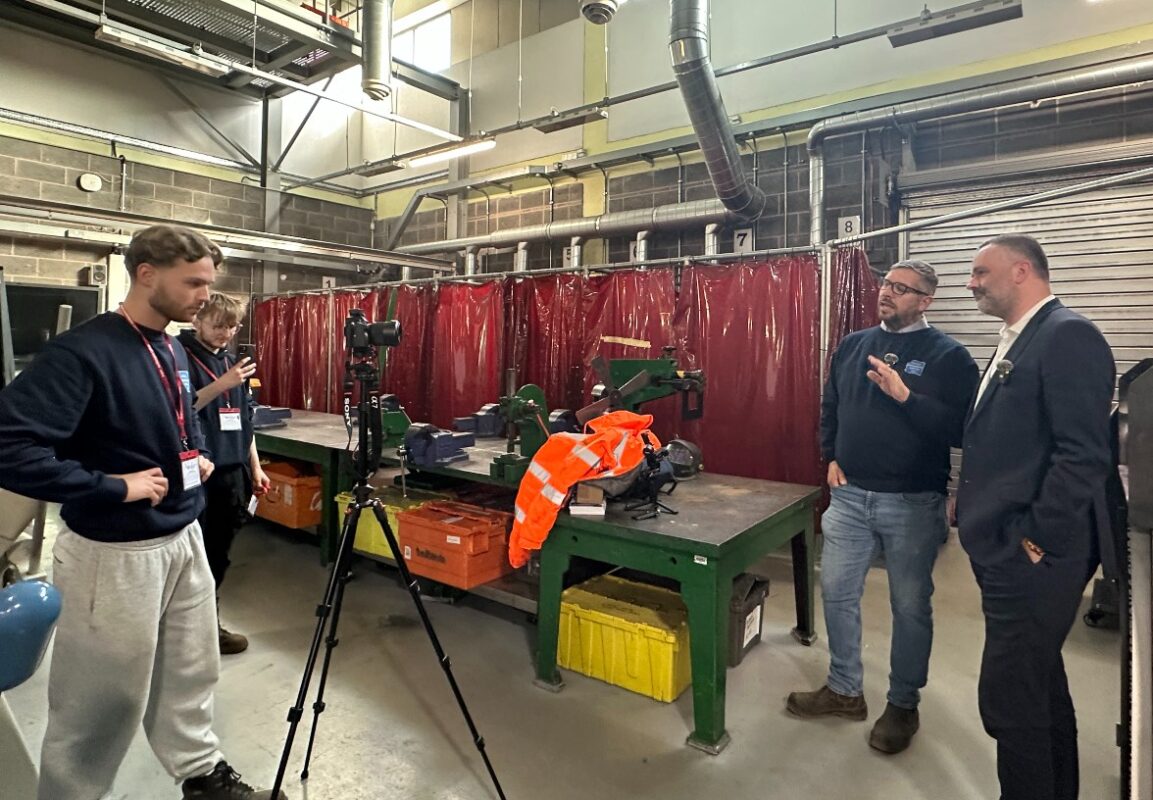A New Future for Apprenticeships?

In this exclusive feature, Alison Morris, Head of Policy at the Skills Federation (also known as the Federation for Industry Sector Skills & Standards) talks to member organisations Ann Watson, CEO of Enginuity; Laura Mansfield, CEO of ScreenSkills; and Hayley Pells, Policy Lead at Institute of the Motor Industry, about their views on how the new government could make the apprenticeship system work better for learners and industry.
Alison Morris: Skills needs are changing rapidly with digitalisation, AI and the green transition all having the potential to improve productivity and efficiency across industry, but at the same time posing a huge challenge. What are the priorities for skills development in your sector?
Ann Watson: We need to prioritise how to upskill and reskill the workforce to almost constantly evolve as new technologies are introduced. Organisations who five years ago needed to upskill their workforce every ten years are now having to do this every three years and this time period will reduce over time. A skills system that supports continuous skill acquisition will be incredibly important.
Laura Mansfield: The screen industries are evolving fast and skills will need to adapt too. The introduction and fast growth of virtual production has changed the nature of many job roles and is creating other roles such as virtual production supervisor. Meanwhile the ever-increasing emphasis on wellbeing and sustainability has led to important new roles, such as intimacy coordinator, mental health advisor and sustainability coordinators.
However, ScreenSkills’ own annual research for the high-end television workforce shows that currently many of the skills shortages are in existing roles that have consistently been in short supply for the last five years: for example, production accountants, location managers, editors and production coordinators.
Ann Watson: I agree, we are seeing similar trends in our sector. Despite a shift to upskilling, the need for core engineering skills such as toolmakers, welders etc will remain just as important.
Hayley Pells: The automotive sector is facing a ‘perfect storm’ of issues that are all converging to give us one of the biggest skills headaches for many years. Currently with 22,000 vacancies – the highest number of vacancies when compared with other sectors – we need a radical approach on a range of issues from responding to technical innovation (eg electric vehicles, advanced driver assistance systems) to addressing barriers to progression and encouraging new entrants.
Alison Morris: So how would you summarise the current health of the apprenticeships system in your sector?
Hayley Pells: It’s a real worry for us. The latest data from the IMI shows that COVID-19 cost the automotive industry 18,000 apprentices – and it will take until 2040 for a full recovery. The sharp decrease in new apprentice numbers raises critical implications for the automotive sector’s future sustainability and competitiveness. In particular, the shortfall risks exacerbating the existing skills gap because the pipeline is not being built to fill roles as older employees retire and skilled workers migrate to other industries.
Ann Watson: We’ve seen considerable reductions in recruitment and retention of apprenticeships, particularly in SMEs. Engineering and manufacturing apprenticeship achievement rates are low and increase by only 2% from 58% to 60% in 2022/23 in England.
Laura Mansfield: Although apprenticeships have enormous potential, and the number of starts has grown since 2019, these are still low in number compared with other sectors. There has been most growth in entry-level production apprenticeships such as production assistant, production coordinator, visual effects (VFX) artist and post-production technical operator – but in most cases these only reach approximately 10-20 starts per year for each standard.
This demonstrates how apprenticeships are still struggling to establish themselves as a training route in the screen industries, despite the clear value they can offer learners and employers as an alternative, more inclusive route into the sector.
Alison Morris: Where are apprenticeships working well in your sector?
Laura Mansfield: Apprenticeships have been particularly successful where ongoing employment can be guaranteed for the duration of the programme. This is simplest in parts of the screen industry that typically use permanent contracts, such as VFX and post production. In addition, some larger broadcasters have been able to offer programmes where apprentices can move across different parts of the company throughout their programme.
Ann Watson: Our recent report involving research with senior leaders and SME employers identified examples of how SMEs have overcome barriers to deliver really fantastic apprenticeship schemes. Emerging themes include the importance of mentoring, benchmarking apprenticeship schemes and working closely in partnership with training providers and colleges that can all help achieve excellent apprenticeship achievement rates.
Hayley Pells: A standout statistic is the prominence of the IMI Level 3 Award in Electric/Hybrid Vehicle System Repair and Replacement, which alone represented 17% of all automative certifications. This underscores the industry’s rapid pivot towards electric and hybrid technologies, which now constitute 45% of all automotive qualifications.
Alison Morris: Where are they working less well and what are the lessons you’ve learned from this?
Laura Mansfield: It is more complicated to increase the uptake of apprenticeships for parts of the screen industries where freelance roles predominate, such as film and TV production. In these cases employment on each production is not long enough to cover the whole apprenticeship, so flexibility is required. There are other complicating factors, such as many production companies being small businesses often without the HR support to administer apprenticeships and support apprentices through their programme.
ScreenSkills has run two pilots as a flexi-job apprenticeship agency to explore the viability of this alternative model. These have shown that with the right agency support, apprenticeships can work very well and over 75% of apprentices recommend them as a training route. However, this can be an expensive route for employers, which raises questions about its future viability without the availability of additional funding.
Ann Watson: Our report revealed the top ten barriers engineering and manufacturing SMEs face with apprenticeship completion rates. The large majority – 41% – was due to apprenticeships leaving due to a career change or better job offer. Almost a third said their training wasn’t as good as they’d hoped and another 20% cited maths and English requirements. This has given us valuable insight and we’ve put together recommendations for employers, training providers and schools as well as policy makers. This is so important as a successful apprenticeship system is fundamental to closing the skills gap and financially benefits employers.
Hayley Bells: Apprenticeships at lower qualification levels have significantly declined. This drop is concerning as lower-level apprenticeships are essential entry pathways, especially for younger people. Additionally, SMEs face challenges in hiring apprentices, leading to a reduction in SME apprenticeships.
We need better support and incentives for SMEs to hire apprentices and it’s important to maintain robust entry-level apprenticeship pathways to ensure inclusivity and accessibility.
Alison Morris: In discussions with our other member organisations, a key theme that has come up is the need for greater flexibility with apprenticeships. What is your view on how this might benefit your sector?
Ann Watson: Given the nature of engineering and manufacturing apprenticeships, shorter programmes wouldn’t serve the sector well and potentially put lives at risk. However, modular apprenticeships if structured appropriately could provide the flexibility needed to teach and train in a way that keeps abreast of changing technologies and job roles.
Hayley Pells: I agree – shorter and modular apprenticeships provide flexibility, making it easier for individuals to upskill and reskill as needed. This approach addresses the need for continuous and lifelong learning in a rapidly changing job market.
Laura Mansfield: For our sector, modular apprenticeships have distinct potential. This would allow apprentices to stop/start their programme, covering the apprenticeship duration across several different employers. This is good preparation for the future experience of working as a freelancer. This will also place less financial burden on smaller employers. However, there are still issues to address in designing a practical modular training programme that is realistic for an apprentice working on an intensive production.
Alison Morris: The new Labour government has committed to reform the ‘broken’ apprenticeship levy and introduce a new growth and skills levy. How do you think the new government might best reform the apprenticeship levy to make a more effective system?
Ann Watson: Far too much of the apprenticeship levy returns to the Treasury unspent. More could be invested to support SMEs and improved funding rates would allow providers the financial bandwidth to invest in the capital equipment they need to deliver first class apprenticeship programmes.
Large employers within the engineering and manufacturing sector have over many years tried to pass their underspend onto SMEs in their supply chain. It is extremely difficult and requires a lot of resource on behalf of the large employer. Where levy transfer has worked well is with West Midlands Combined Authority but the success of this programme was as a direct result of investment in brokerage resource to hand hold the SME and provide a link between the SME and large employer. To expect a large employer to do this is not realistic.
Laura Mansfield: Given the short-term contract roles predominantly found in many parts of the film and TV industries, the structure of the current apprenticeships system has unfortunately meant that it has not yet been possible to use a large proportion of apprenticeship levy payments made from our sector.
We would welcome the opportunity to use apprenticeship levy payments to fund a wider range of on-the-job work-based training beyond apprenticeships alone, and to support related employer costs, such as wages or HR costs for SME companies.
Hayley Pells: The priority should be to allocate all levy funding to training, ensuring it is not retained by the Treasury. Extending the time limit for spending levy funds to five years would enable long-term planning and investment in training. We’d also like to see 50% of levy funds ring fenced for level 2 or 3 apprenticeships to promote entry-level talent and up to 50% of apprenticeship levy to be used for approved non-apprenticeship training courses.
Alison Morris: What would be your main call on the Labour government to reform the apprenticeship system to serve your sector better?
Laura Mansfield: I’d like to see far greater flexibility, enabling a wider variety of work-based training options and more flexible use of the levy funds to cover related employer costs, such as wages or HR costs for SME companies. Other shorter-term improvements I’d look for include ensuring apprenticeship standards are tailored to specific occupations and designed with short-term projects in mind and exploring opportunities for a modular or portable apprenticeship model. Another idea would be to fund an industry agency to bring together cohorts of apprentices, and support recruitment and pastoral care for apprentices through their programmes.
Ann Watson: I agree, flexibility is really important and particularly as technologies change. The support programme idea is an interesting one – one of the ten recommendations we set out in our recent report was for a cross-sector mentoring programme to support apprenticeships cross-sector. We have seen real success with an SME in the north west who have used mentoring to help boost apprenticeship completion rates – there is so much government can learn from great examples like this.
Hayley Pells: Flexibility is important for us too. Most importantly I’d prioritise reform of the apprenticeship levy. The current system encourages inefficient spending and a “use it or lose it” mentality, leading to rushed decisions and potentially inappropriate training investments.
Alison Morris: What would be the benefit of the new government drawing on the expertise of sector skills bodies in developing future skills policy, and in particular the future of apprenticeships?
Ann Watson: The UK skills landscape is incredibly fragmented. We have four different countries with education and skills devolved but employers work across the UK and have to grapple with different apprenticeship systems. Sector skills bodies bring an important holistic and strategic approach across the entire sector and across the four nations. This oversight and intelligence is invaluable if the government is going to make the systematic changes needed without throwing the baby out with the bath water.
Hayley Pells: I hope that the new government will know that any future industrial strategy can only be successful if policies are well-informed by industry needs and challenges. Sector skills bodies are well-placed to enhance the alignment between training programmes and market demands, ensuring the skills system remains relevant and dynamic.
Laura Mansfield: There is an enormous advantage to working with sector skills bodies. We have a unique overview of the training requirements and business structures of the many different types of employer within our respective industries that gives us the ability to represent these as a coherent voice.
In addition, there is an important role for skills bodies in coordinating and promoting the delivery of apprenticeships working collaboratively with employers. Supporting and appropriately funding this kind of role for skills bodies (potentially from flexing the use of levy payments) would be a progressive step forwards to realising the government’s future ambitions for apprenticeships.
By Alison Morris, Head of Policy at the Skills Federation (also known as the Federation for Industry Sector Skills & Standards), Ann Watson, CEO of Enginuity, Laura Mansfield, CEO of ScreenSkills, and Hayley Pells, Policy Lead at Institute of the Motor Industry











Responses